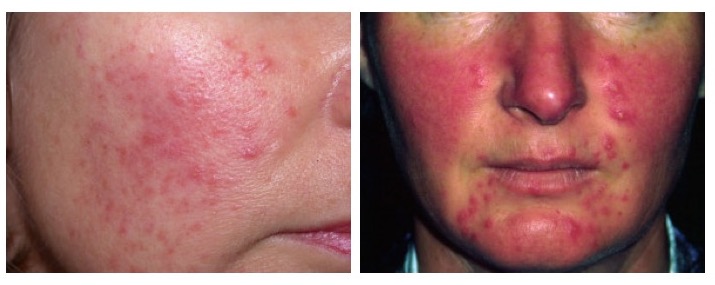Rosacea in a nutshell
Blushing for weeks or months? It could be a common and chronic skin disease, which has no cure.

Rosacea.
If you see some people blushing for weeks or months, they may be suffering from a common and chronic skin disease known as rosacea. While there may be no cure yet, there are ways to keep it managed with prevention and treatments.
Dr Lim Chun Siong from DTAP Clinic shares more about this condition:
What is rosacea?
Rosacea is a long-term skin condition that causes blushing and pimples on the face, flaring up for weeks or even months.
What causes rosacea?
The medical community does not know what causes rosacea, although some things can trigger or make rosacea worse, such as hot drinks, spicy food, alcoholic beverages, sunlight, temperature extremes, exercise, emotional changes, some blood pressure medications, and certain cosmetic products.
How does rosacea affect people?
Rosacea occurs more commonly in women in age 30 to 60, and in people with fair skin. Symptoms can vary greatly among people with this condition. Some people may notice getting odd bumps, or may have a rosier-than-average complexion, or have what is perceived as a “permanent sunburn”.
Some may have a much more noticeable, painful, and difficult time with rosacea. Sufferers often feel embarrassed by unwanted stares or comments, and are distressed by the recurrent blushing and acne eruptions on their faces. Some sufferers may also notice that their skin is more sensitive than others’ and have had to take special care in choosing hypoallergenic skincare products.
Most sufferers have had to make significant adjustments to their lifestyles in order to reduce the severity of rosacea, which include giving up on their favourite hobbies and activities that expose them to the sun, changing the way they exercise, and avoiding certain food and drinks.
What are the treatment options?
For rosacea, treatments are targeted based on the symptoms of the patients. For example, if the symptoms are acne, then antibiotic cream or pills are prescribed. For facial redness, doctors may prescribe externally applied brimonidine gels that reduce redness by narrowing the blood vessels under the skin, or options such as intense pulse light (IPL), or laser treatments.
If rosacea causes enlarged noses in some patients, conventional or laser surgeries may be used to remove excess growth on the noses. For ocular rosacea where rosacea affects the eyes and the eyelids, generally patients can apply a warm compress on the eyelids, lubricating eye drops to relieve dry eyes, and antibiotic eye drops or pills may be prescribed if an eyelid inflammation occurs.
Are there ways to prevent and manage rosacea?
Rosacea is a chronic condition and the best way to manage rosacea is to reduce its flares by avoiding known triggers, and treat the symptoms if flares do occur.
Common triggers and mitigating methods include:
- Sunlight – stay in the shade, wear a hat, use broad-spectrum sunscreen with high SPF (>30).
- Alcohol – avoid drinking.
- Spicy food – avoid consumption.
- Hot beverages – avoid drinking.
- Temperature extremes – take cool instead of hot showers.
- Exercise – exercise indoors, adjust intensity to keep symptoms under control.
- Emotional changes – though hard to avoid, can be mitigated by meditation, prayers, yoga and other calming activities.
- Medications – inform your doctor so that alternative medications can be prescribed.
- Cosmetics – avoid those that are known to trigger flares.
A good skincare routine can also reduce irritation and assist in the control of symptoms. For example, avoid habitual or frequent rubbing or touching of the face, using non-soap cleansers to wash the face, and use an appropriate moisturiser frequently.
(** PHOTO CREDIT: DermNet NZ)

0 Comments